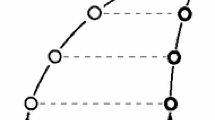We study a differential pursuit game in a system dynamically described by a linear functional differential equation. The coefficients of the equation are closed linear operators acting in Hilbert spaces. The operator at the derivative of state depends on the current time and is, generally speaking, not invertible. Our main assumption is a restriction imposed on the characteristic operator pencil of the equation on a ray of the real positive semiaxis. The solutions of the equation are represented with the help of the formula of variation of constants in which the effect of delay is taken into account as a result of summation of shift-type operators. To establish conditions under which the dynamic vector of the system approaches a cylindrical terminal set, we use constraints imposed on the support functionals of two sets determined by the behaviors of the pursuer and evader. We also present an example of differential game in a pseudoparabolic system described by a partial functional-differential equation.
Similar content being viewed by others
References
R. Isaacs, Differential Games, Wiley & Sons, New York (1965).
A. Friedman, “Differential games of pursuit in Banach spaces,” Math. Anal. Appl., 25, 93–113 (1969); https://doi.org/10.1016/0022-247X(69)90215-7.
A. A. Chikrii, Conflict-Controlled Processes, Springer Science and Business Media, Dordrecht (2013); https://doi.org/10.1007/978-94-017-1135-7.
J. Yong, Differential Games: A Concise Introduction, World Scientific, New Jersey (2015); https://doi.org/10.1142/9121.
N. N. Krasovskii and Yu. S. Osipov, “Linear differential-difference games,” Dokl. Akad. Nauk SSSR, 197, 777–780 (1971).
E. N. Chukwu, “Capture in linear functional differential games of pursuit,” J. Math. Anal. Appl., 70, 326–336 (1979); https://doi.org/10.1016/0022-247X(79)90047-7.
A. A. Chikrii and G. Ts. Chikrii, “Group pursuit in differential-difference games,” Differents. Uravn., 20, 802–810 (1984).
P. V. Reddy and J. C. Engwerda, “Feedback properties of descriptor systems using matrix projectors and applications to descriptor differential games,” SIAM J. Matrix Anal. Appl., 34, 686–708 (2013); https://doi.org/10.1137/100819321.
J. H. Lightbourne and S. M. Rankin, “A partial functional differential equation of Sobolev type,” J. Math. Anal. Appl., 93, 328–337 (1983); https://doi.org/10.1016/0022-247X(83)90178-6.
J. K. Hale and S. M. Verduyn Lunel, Introduction to Functional Differential Equations, Springer, New York (1993).
A. G. Rutkas and L. A. Vlasenko, “Time-domain descriptor models for circuits with multiconductor transmission lines and lumped elements,” in: Proc. of the 5th IEEE Internat. Conf. on Ultrawideband and Ultrashort Impulse Signals (Sevastopol, Crimea) (2010), pp. 102–104; https://doi.org/10.1109/UWBUSIS.2010.5609106.
E. Hille and R. S. Phillips, Functional Analysis and Semi-Groups, Providence, RI (1957).
K. Yosida, Functional Analysis, Springer, Berlin (1980).
L. A. Vlasenko and A. G. Rutkas, “Optimal control of undamped Sobolev-type retarded systems,” Math. Notes, 102, 297–309 (2017); https://doi.org/10.1134/S0001434617090012.
A. Pazy, Semigroups of Linear Operators and Applications to Partial Differential Equations, Springer, New York (1983).
J. L. Lions, Optimal Control of Systems Governed by Partial Differential Equations, Springer, New York (1971).
O. A. Boichuk, V. L. Makarov, and V. A. Feruk, “A criterion of solvability of resonant equations and construction of their solutions,” Ukr. Mat. Zh., 71, No. 10, 1321–1330 (2019); English translation: Ukr. Math. J., 71, No. 10, 1510–1521 (2020); 10.1007/s11253-020-01728-7.
A. A. Chikrii, “An analytical method in dynamic pursuit games,” Proc. Steklov Inst. Math., 271, 69–85 (2010); https://doi.org/10.1134/S0081543810040073.
L. A. Vlasenko and A. G. Rutkas, “On a differential game in a system described by an implicit differential-operator equation,” Different. Equat., 51, 798–807 (2015); https://doi.org/10.1134/S0012266115060117.
L. A. Vlasenko and A. A. Chikrii, “On a differential game in a system with distributed parameters,” Proc. Steklov Inst. Math., 292, Issue 1 Supplement, 276–285 (2016); https://doi.org/10.1134/S0081543816020243.
A. V. Balakrishnan, Introduction to Optimization Theory in a Hilbert Space, Springer, Berlin (1971).
R. E. Showalter and T.W. Ting, “Pseudoparabolic partial differential equations,” SIAM J. Math. Anal., 1, 1–26 (1970); https://doi.org/10.1137/0501001.
A. Rutkas and L. Vlasenko, “Implicit operator differential equations and applications to electrodynamics,” Math. Methods Appl. Sci., 23, 1–15 (2000); https://doi.org/10.1002/(SICI)1099-1476(20000110)23:1<1::AID-MMA100>3.0.CO;2-5.
V. L. Makarov and N. V. Maiko, “Weighted estimated accuracy of the method of Cayley transform for abstract boundary-value problems in Banach spaces,” Dop. Nats. Akad. Nauk Ukr., No. 5, 3–9 (2020); https://doi.org/10.15407/dopovidi2020.05.003.
V. L. Makarov and N. V. Mayko, “Weighted estimates of the Cayley transform method for boundary value problems in a Banach space,” Numer. Funct. Anal. Optim., 42, 211–233 (2021); https://doi.org/10.1080/01630563.2020.1871010.
Author information
Authors and Affiliations
Corresponding author
Additional information
Translated from Ukrains’kyi Matematychnyi Zhurnal, Vol. 74, No. 2, pp. 164–177, February, 2022. Ukrainian DOI: https://doi.org/10.37863/umzh.v74i2.6895.
Rights and permissions
Springer Nature or its licensor holds exclusive rights to this article under a publishing agreement with the author(s) or other rightsholder(s); author self-archiving of the accepted manuscript version of this article is solely governed by the terms of such publishing agreement and applicable law.
About this article
Cite this article
Vlasenko, L.A., Rutkas, A.G. & Chikrii, A.O. Functional-Differential Games with Nonatomic Difference Operator. Ukr Math J 74, 186–202 (2022). https://doi.org/10.1007/s11253-022-02057-7
Received:
Published:
Issue Date:
DOI: https://doi.org/10.1007/s11253-022-02057-7



